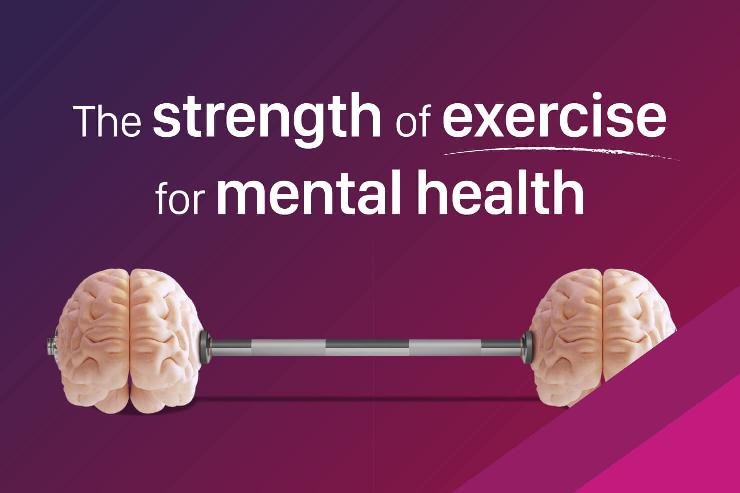Regular exercise is not only good for your body, but it also has a profound impact on mental health. Engaging in physical activity stimulates the release of endorphins—chemicals in the brain that act as natural mood lifters. Exercise can reduce stress, anxiety, and depression while improving overall cognitive function and emotional well-being. Whether it’s a brisk walk, yoga, or intense strength training, incorporating regular physical activity into your routine can help manage mental health challenges and boost your overall happiness.

Key Mental Health Benefits of Regular Exercise:
Reduces Stress:
- Physical activity increases the production of endorphins, the body’s natural mood boosters, which help reduce the effects of stress. Exercise also promotes relaxation by lowering cortisol levels (the stress hormone).
Improves Mood:
- Regular exercise has been shown to reduce symptoms of depression and anxiety. Engaging in activities like walking, running, or swimming can help improve mood and emotional well-being.
Boosts Self-Esteem and Confidence:
- Achieving fitness goals, improving physical appearance, and feeling stronger can significantly boost self-confidence. Exercise helps create a positive body image and promotes a sense of accomplishment.
Enhances Cognitive Function:
- Exercise improves brain function by increasing blood flow to the brain, which supports cognitive processes such as focus, memory, and decision-making. It can also reduce the risk of cognitive decline as you age.
Improves Sleep:
- Physical activity helps regulate your sleep cycle. Exercise can promote deeper, more restful sleep by reducing insomnia and improving the quality of your sleep.
Reduces Symptoms of Anxiety and Depression:
- Exercise helps combat anxiety and depression by increasing the production of neurotransmitters like serotonin and dopamine, which improve mood and reduce feelings of sadness or worry.
Enhances Resilience to Mental Health Challenges:
- Regular exercise builds mental toughness and resilience. It can help individuals cope better with life’s challenges, fostering a sense of control and empowerment.
Social Interaction:
- Group workouts, fitness classes, or exercising with a friend can enhance social connections and provide emotional support, helping combat feelings of loneliness and isolation.